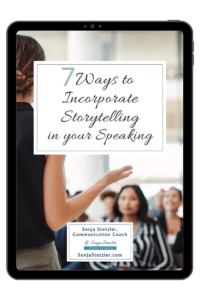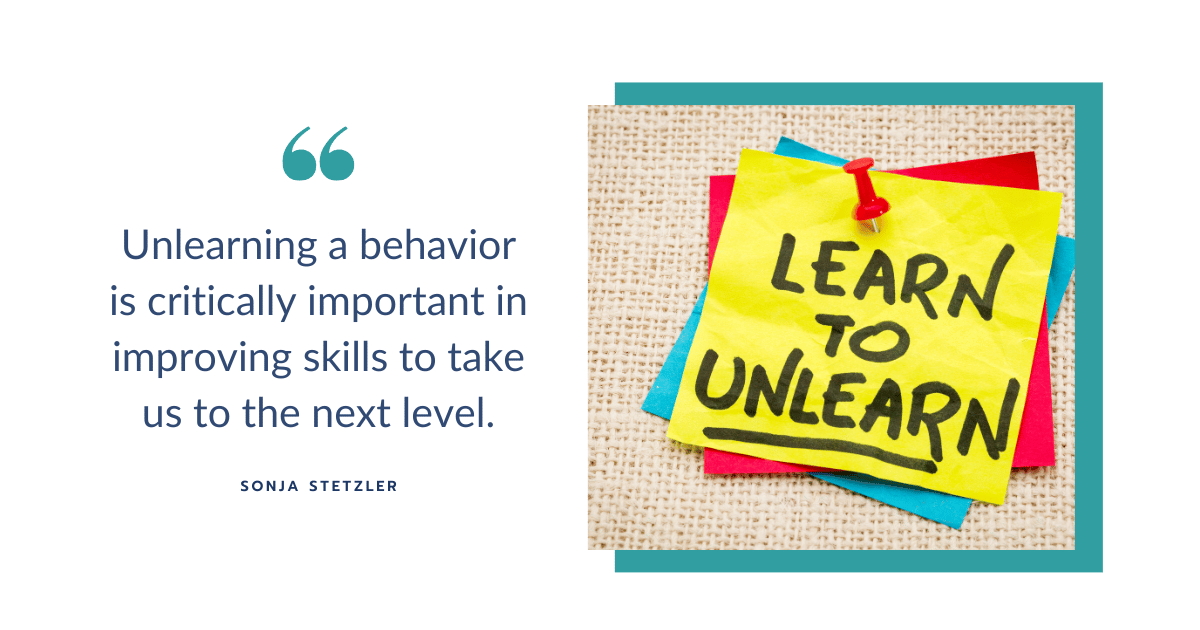Unlearning a behavior is critically important in improving skills to take us to the next level.
I recently worked with a client who wanted to improve her public speaking delivery as she was asked to speak to larger audiences than she had previously presented to in her role at her organization.
She viewed herself as a good speaker – that is until she watched a video of herself delivering a recent presentation. Her perception of herself as a good speaker had been shattered as she watched her performance, and her confidence fell.
The change process is challenging, and it can sometimes involve unlearning.
Unlearning refers to the process of letting go of previously learned beliefs, assumptions, habits, and behaviors and choosing new models that are more accurate, useful, or relevant. It involves challenging our existing mental models and thinking patterns and being open to alternative perspectives and approaches.
When we learn, we add new skills or knowledge to what we already know. When we unlearn, we make a shift outside of what we know to a new mental (and sometimes physical) model.
Unlearning allows us to adapt.
My client had already established her need for change by her awareness that what she was currently doing was not working as well as she had liked. Her unlearning involved a shift from speaking solely from her point of view to speaking from and including the perspective of her audience.
Working with small, incremental changes which were the easiest and most impactful to implement, my client reworked her content and included more practice with her delivery (change doesn’t occur without practicing new behaviors!) She eventually got to where she wanted to be.
Unlearning a behavior can be an important step in personal growth and professional development. It allows us to break free from limiting beliefs and develop new skills and perspectives that enable us to adapt to changing circumstances and thrive in a rapidly evolving world.
Is there something you need to unlearn in order to grow? Please respond in the comments below and share your thoughts.
 Most people don’t remember the data they hear in presentations. However, they do remember stories.
Most people don’t remember the data they hear in presentations. However, they do remember stories.
Why?
Stories make an emotional connection with an audience.
Stories make us, as speakers, more relatable.
And if a story is told well, the impact you can make with a story is longer-lasting than data.
Grab my free Storytelling Workbook to start crafting your stories to create a greater impact with your audiences – enter your name and email below to download a copy.

